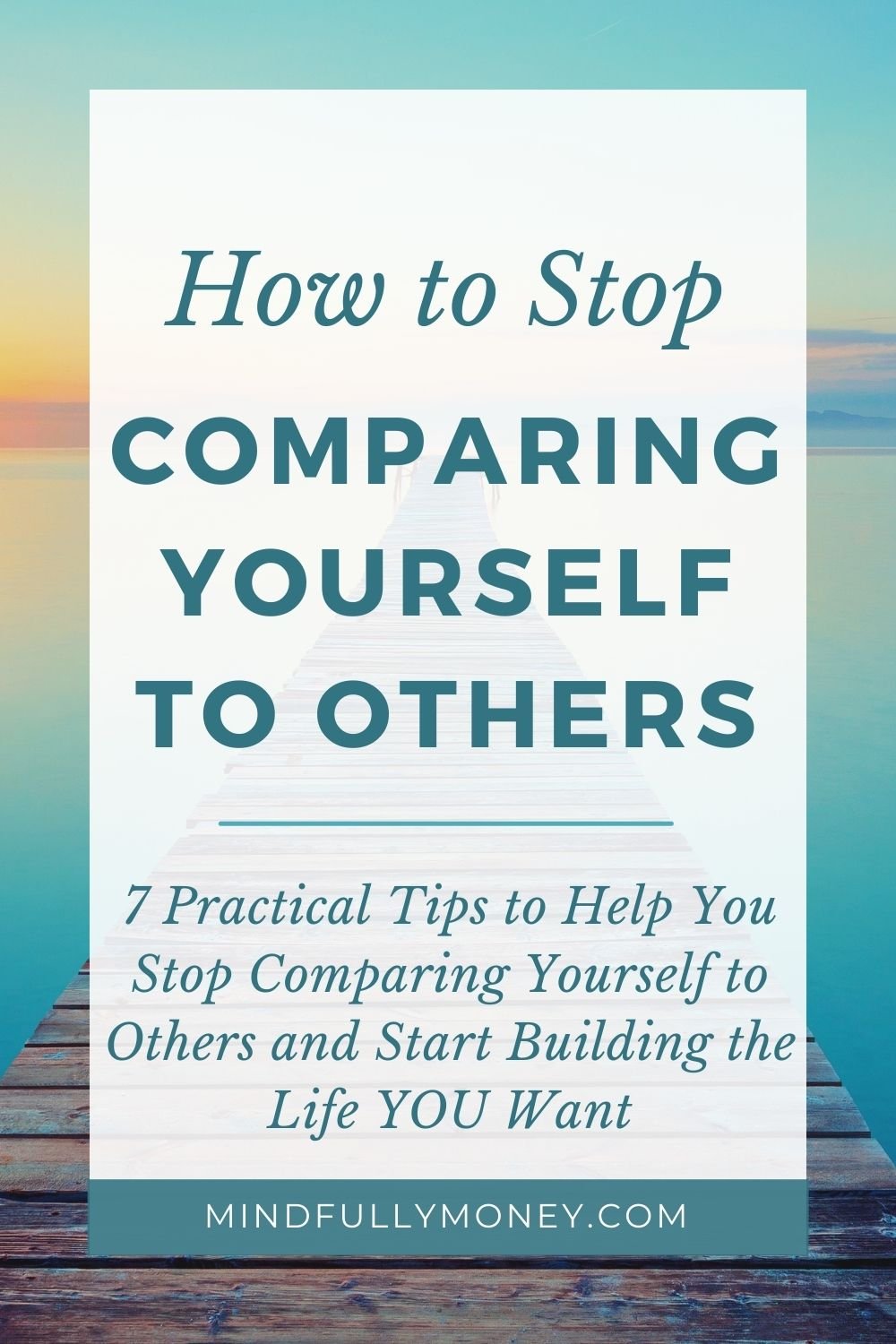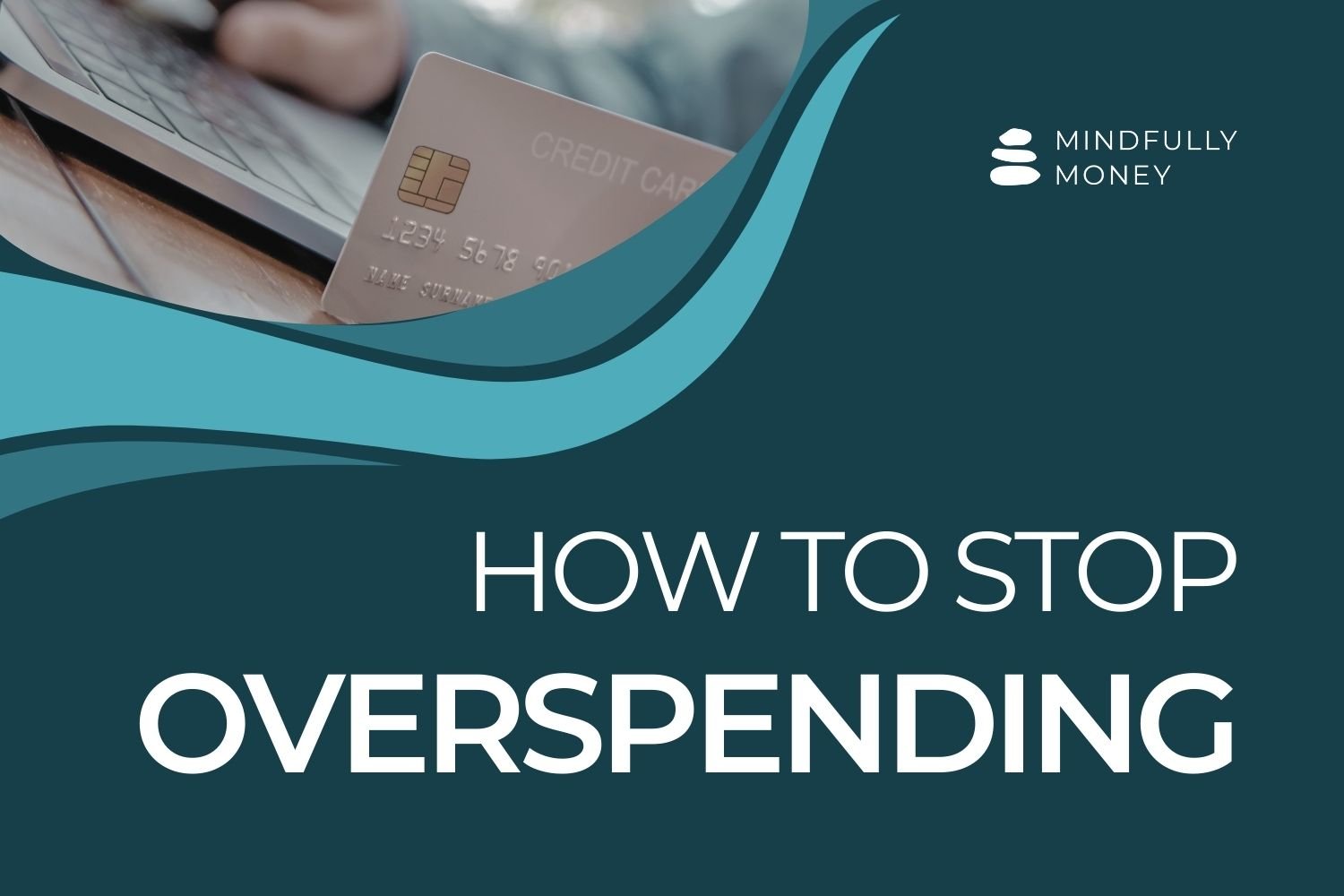7 Practical Tips to Help You Stop Comparing Yourself to Others
Pin this image to save for later!
It can be so hard to not compare yourself to others. It has always been hard, but social media certainly hasn’t made it easier. We are bombarded daily with pictures of dream vacations, home remodels, fashion, amazing restaurant food and more. Companies have created a culture saturated with marketing messages designed to make us want (and buy) more.
Have you ever noticed that sometimes scrolling through Facebook or Instagram leaves you feeling drained? This happens to me all the time. As happy as I am that a friend got to go on this amazing trip to Hawaii, there’s just no way I’m not going to lust after that warm beach when I’m stuck mentally gearing myself up to put on my snowpants and go for a walk while freezing my face.
It’s totally normal to want more, and that doesn’t have to be a bad thing. Wanting more can create a powerful incentive to achieve or earn more if leveraged correctly.
But wanting more can also lead to unhappiness and even hold you back financially.
That’s why it is so important to nurture your desires in a way that helps you achieve your goals without letting them go rampant and hurt your life satisfaction. It’s all about balance and intentionality.
Here are 7 tips to help you stop comparing yourself to others (in an unhealthy way):
1. Get clear on your values
What do you really want out of life? What is important to you? When you focus on what is important to you, it becomes much easier to filter out what other people are doing. Instead of constantly thinking about what you are doing or buy in terms of other people, you can evaluate your purchases in terms of how they support your dream life. When it comes to purchases beyond your basic living expenses, always ask yourself if that purchase helps you build the life you want.
If you need help getting started with identifying your values, sign up for my free values worksheet.
2. Set goals
Where do you hope to be in five years, ten years, etc? What would you do if money wasn’t an issue?
Figure out what you want (based on your values) and then get very specific about what that looks like. Identify specific goals and then start working backwards to list what you need to do to achieve those goals.
3. Appreciate what you have
It’s easy to always look at what other people are doing and think that you want that too. When images of fashion, or travel, or home decor shows up on social media, you immediately start dreaming of doing or having the same thing. When that happens, pause for a moment and remind yourself of all the things you do or have that you already love.
4. Practice gratitude
It’s amazing how being thankful for what you have has a way of making you feel better about life. Make it a habit to regularly list things for which you are grateful.
5. Recognize the flaws in your thinking
When you see a friend go on an amazing tropical vacation or buy a giant new home, you probably assume they have everything they could ever want. You probably think they make a ton of money (more than they actually do), are saving for retirement, and don’t have any debt.
But this is often not true. Stop making assumptions about someone’s whole financial situation based on one thing. Maybe they scrimped and saved for a long time to go on their dream vacation. Maybe they took out an unhealthy amount of debt to buy that house. Maybe they don’t actually have anything saved for retirement.
It’s important to not compare someone else’s life highlights to your everyday reality.
6. Identify and avoid triggers
Many times, specific people, places, or activities trigger us to want more. It could be scrolling through social media, getting together with particular people, going to the mall, spending time in a wealthy area, or any number of things.
Once you know what your specific triggers are, figure out how you can avoid them. That might mean unfollowing certain social media accounts, spending less time on social media in general, or not going to Target eight days a week.
You may not be able to eliminate all sources, but chances are there are ways to remove some of the temptations so they are out of sight, out of mind.
Pin this to save for later!
7. If someone has something that you do want, make it a goal to work toward rather than thinking you need it now
Put it in your budget. Rank it against your other financial goals. For example, you could ask yourself: is this throw pillow more or less important than saving for a vacation?
It doesn’t really matter what you choose as long as you recognize that each purchase means you give up something else. You can and should splurge on things that make you happy, but be aware of the consequences and make an intentional choice.
Remember, this is a practice and will take time to develop. Be patient with yourself.
Changing your mindset around money is key to taking control of your finances and living an intentional life. Once you do that, it becomes a lot easier to stop overspending, save more, and achieve your financial and life goals.














